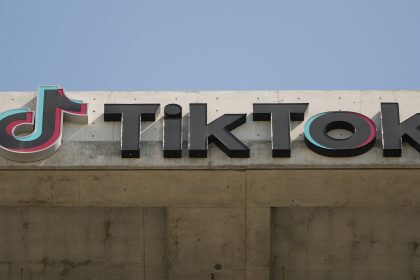Pallone Says Congress Must Do More to Protect Consumers From Relentless Robocalls

Representative Frank Pallone Jr., chairman of the House Energy and Commerce Committee, said Tuesday it’s time for Congress to provide regulators and the telecom industry with tools to protect American consumers from the scourge of relentless robocalls.
“We all know how annoying these calls are, but they are more insidious than that,” the New Jersey Democrat said as lawmakers embarked on a renewed effort to rein in the calls.
“Robocalls are not just being made for telemarketing, some callers are trying to defraud hard working Americans and seniors,” Pallone said. “In some instances, criminals are pestering consumers with one-ring calls hoping that they will call the number back and incur excessive charges.”
Everyone who has ever had a telephone knows how annoying robocalls can be. According to one industry estimate bandied about at Tuesday’s meeting of the House Energy and Commerce Committee, robocalls pinged consumers some 26 billion times in 2018 alone.
Even worse than the unwanted badgering, a large number of the calls are placed on behalf of a fraudster who use bogus identities to dupe unsuspecting consumers and the elderly into giving them personal information like bank account and social security numbers.
Among those who testified before the committee on Tuesday was David Summitt, chief information security officer at the H. Lee Moffitt Cancer & Research Institute in Tampa, Florida.
Summitt told the panel that patients at the institute received roughly 6,600 external calls over a recent 90-day period that were made to appear to be coming from inside the cancer center itself.
Other robocalls were brazenly misidentified as being from federal agencies in an effort to deceive doctors at the institute and get them to surrender sensitive information.
Summitt said the worrisome information was compounded by a telecommunications carrier that he declined to name in his testimony, but that had prevented institute officials from filing a complaint or otherwise taking action against the robocallers.
“When you’re sitting here, and you’re in a health-care situation, and you’re seeing a phone call coming from inside the organization, you’re going to pick the thing up,” he said.
“They are making money, and they’re doing it on the backs of patients. They’re hurting us very badly,” Summitt said.
Patrick Halley, a senior vice president at USTelecom, an industry association, told the committee that the industry has worked to implement new technology that would alert consumers to potential robocalls.
The problem, Halley said, is that there is no single solution that will eliminate all robocalls.
“But progress is being made every day,” he said.
That weak assurance did little to mollify Chairman Pallone, who noted, “one of this committee’s top priorities is putting consumers first – and one of the things I hear most from consumers back home is that they are sick and tired of robocalls.
“Consumers today are facing more robocalls than ever,” he continued. “Government data from 2017 shows that New Jerseyans filed more complaints with the National Do Not Call Registry — per capita — than any other state about robocalls. It is getting so bad that some experts estimate that almost half of all calls to our cell phones this year will be robocalls.”
Congress has taken bipartisan action in the past to help put consumers back in control of their cell phones. In 1991, Congress passed the Telephone Consumer Protection Act and then later authorized the Do Not Call Registry.
But as technology has evolved, robocalls, and the threat they impose, have increased,” Pallone said.
“It is easier than ever for someone to begin making robocalls,” he complained. “Bad actors only need a smartphone with a few select applications to make spoofed robocalls. This means that existing approaches to stop these calls may not work anymore. We need to implement new call authentication technologies to clear these unwanted calls from our phone lines.
“Regulators and industry need better tools to protect consumers, and once again, it is time for Congress to act. Earlier this year I introduced the Stopping Bad Robocalls Act to turn the tide in the fight against robocalls. There’s no one silver bullet, and that’s why it is so important that we address this problem from every side,” Pallone said.
The Stopping Bad Robocalls Act would require that carriers implement new call authentication technologies to help ensure that consumers know who is on the other end of the line when they pick up the phone. Implementing these technological solutions would also help consumers control who can reach them more generally.
“My bill would also update the legal definition of autodialer to make sure that callers can’t use new technologies to get around the long-standing consumer protections against robocalls,” Pallone said. “The Federal Communications Commission is currently studying how it could address its own interpretation of the term autodialer, and as part of that proceeding, the FCC could begin to fix the problem on its own. When coming to a resolution, I would urge the commission to put consumers first in this matter so that Congress doesn’t have to redo its work.”
























